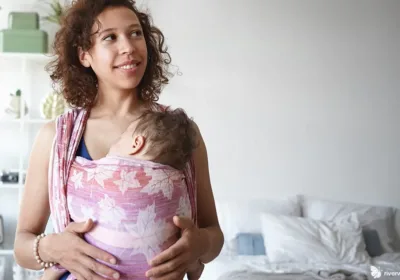Can You Have a Baby with Endometriosis?

Endometriosis is a condition where tissue similar to the lining of the uterus grows outside the uterus, often causing pain, heavy periods, and sometimes infertility. For many women, one of the biggest concerns is whether endometriosis will affect their ability to get pregnant and carry a baby to term. Understanding how endometriosis affect pregnancy can help women make informed decisions about family planning and treatment.
Can You Get Pregnant with Endometriosis?
Yes, it is possible to get pregnant with endometriosis. However, the condition can sometimes make conception more difficult. Endometriosis may affect fertility in several ways. For example, endometriosis growths can block the fallopian tubes or distort pelvic anatomy, making it harder for the egg and sperm to meet. It can also trigger an inflammatory response, which may impact egg quality, sperm function, or embryo implantation.
Another way how endometriosis can affect pregnancy is the condition can interfere with normal ovulation, reducing the chances of pregnancy. While not all women with endometriosis experience infertility, studies suggest that about 30–50% may face challenges when trying to conceive.
How Endometriosis Affect Pregnancy Outcomes
Once pregnancy occurs, many women with endometriosis go on to have healthy babies. Still, research indicates a slightly higher risk of complications. Some of the complications includes miscarriage, preterm birth, placenta prevue or placental complication, or necessary caesarean delivery. That said, many pregnancies progress without major issues, especially with proper monitoring and care.
Treatment Options for Improving Fertility
For women struggling to conceive, several treatments can increase the chances of pregnancy. For instance, hormonal therapies are often used to manage symptoms, though they do not improve fertility.
Laparoscopic surgery can remove endometrial lesions and scar tissue, improving the chances of natural conception. And options like vitro fertilization (IVF) can help bypass some of the barriers caused by endometriosis.
Supporting a Healthy Pregnancy with Endometriosis
Women with endometriosis who become pregnant should work closely with their healthcare providers. Regular prenatal visits, a healthy lifestyle, and early management of any complications can greatly improve outcomes.
Final Thoughts
Endometriosis can pose challenges, but it does not make pregnancy impossible. With early diagnosis, proper treatment, and supportive medical care, many women successfully conceive and deliver healthy babies. Understanding how endometriosis affect pregnancy is the first step in making empowered decisions about your reproductive health.
Start by discussing the advantages and disadvantages of your options with your obstetrician at Riverwalk OGBYN. Your doctor can also recommend resources for you to review and help with your decision.
Contact your OB-GYN at Riverwalk OBGYN at (210) 402-+022 for help with endometriosis symptoms and fertility in San Antonio.
You may also enjoy reading: Why Evidence Based Medicine Matters




